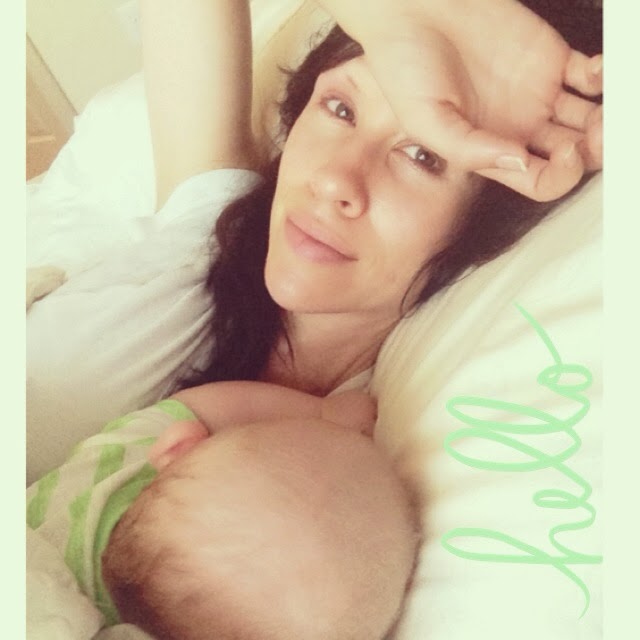Mothering Beyond Image: How to Get out of the Shadows
Times have changed quite a bit in the past 50 years. Mothers hold the most important job on the planet, and yet they seem to be desperately struggling with how to “do it all” in a culture that tends to simultaneously idealize and suppress women as mothers.
From a depth psychology perspective it is easy to see how the unconscious motivations and belief systems that have been around for thousands of years have deeply influenced mothering.
Psychologist Carl Jung defined the shadow as the place in the unconscious where we hide the parts of ourselves that appear negative to the conscious mind. We fear they may be evil and bad so we keep them hidden in the dark. When we fail to recognize these shadow aspects, we may feel and/or act in ways that we don’t consciously understand.
It seems to me that the idealization of mothers has led to a repression of many of the feelings surrounding the unrealistic expectations placed on women, and therefore the shadow aspects remain hidden in our psyches. The influence this has on the lives of many mothers can be seen in the increasing number of women suffering from depression, anxiety, substance abuse, and/or other feelings of discontent.
“MOTHERS ARE OFTEN SEEN IN MEDIA PORTRAYALS AS NURTURING, LOVING, AND PERFECT. THESE ARE IMAGES THAT MOST WOMEN FEEL THEY CAN’T ATTAIN BUT ARE TOO AFRAID TO TALK ABOUT BECAUSE THEY FEAR BEING JUDGED AS BAD MOTHERS.”
Mothers are often seen in media portrayals as nurturing, loving, and perfect. These are images that most women feel they can’t attain but are too afraid to talk about because they fear being judged as bad mothers. The too-good mother archetype is the name I use to describe the over-achieving perfectionism so often seen in American mothers today.
Author Debbie Ford called the shadow “the gateway to true freedom.” Physician Deepak Chopra calls it the “way to love.” Excavating the shadow of the too-good mother archetype helps women begin to transform the outdated parenting paradigm, dispel the myths of being a perfect parent, and connect more deeply to themselves and others.
Five common themes abound for moms. These include:setting realistic expectations; taking care of self; loving and letting go; integrating the paradox of mothering; and advocating for choice and change. Here is a brief summary of each, some of the shadow aspects that may emerge in each and how to combat them.
1) Setting Realistic Expectations
Shadow aspects include: unrealistic expectations, guilt, judgment, shame, humiliation, depression, anxiety, addiction, cover-ups and isolation.
Suggestions for change:
- Reconsider reasonable expectations.
- Let go of judgment of self and others.
- Prioritize daily routines.
- Schedule weekly family meetings to negotiate family chores and fun.
- Enlist help from others.
- Give children responsibilities.
- Find time to “be” rather than “do.”
2) Taking Care of Self
Shadow aspects include: neglecting needs, poor self-care, fatigue, depression, burnout, co-dependence, resentment, anger, sacrifice and frustration.
Suggestions for change:
- Take time to journal and reflect on who you are as an individual (i.e. likes/dislikes).
- Pay attention to your body signals.
- Schedule time for yourself each week.
- Take 10 minutes a day to meditate/reflect.
- Negotiate responsibilities with family members.
- Set boundaries around your time.
- Use support systems. (“other mothers”)
3) Loving and Letting Go
Shadow aspects include: manipulation, controlling, fear, betrayal, abuse, anger, grief, depression and anxiety.
Suggestions for change:
- Notice when you are being overly controlling, and try to witness your child’s experience.
- Connect to a spiritual or contemplative practice.
- Listen to your dreams.
- Recognize when you might be hoping that your children will fulfill your dreams.
4) Integrating the Paradox of Mothering
Shadow aspects include: splitting, depression, feelings of failure, confusion, frustration, guilt and idealization.
Suggestions for change:
- Allow yourself to grieve losses to completion.
- Recognize that life is “both/and” NOT “either/or.”
- Learn to hold the tension of the opposites.
- Contain the paradox in ways that comfort you.
- Breathe.
- Know that darkness defines the light.
5) Advocating for Choice and Change
Shadow aspects include: victim consciousness, blame, debilitation, silent suffering, powerlessness, anger, depression and anxiety.
Suggestions for change:
- Recognize when you are being criticized and speak up for yourself.
- Pay attention to social advocacy issues in your community.
- Choose to work, or to stay at home, because it is the best choice for you.
- Tell the truth about your life.
- Empower yourself and others.
- Recognize victim consciousness & re-frame.
By bringing the shadow aspects of these five common themes into conscious awareness, mothers are then able to lighten up on themselves and others, and live a more healthy and whole family life.
It is important to remember that shadow-work is a process and requires an honest inventory of old worn-out beliefs systems. This may trigger some unresolved emotional content. Working with a supportive therapist, coach, and/or friend can best support the process. The journey towards mothering beyond image is embarked upon differently for each mother.
The transformation that can occur as a result of this work opens many doors for all women, mothers and children.


























































































































































0 comments:
Post a Comment